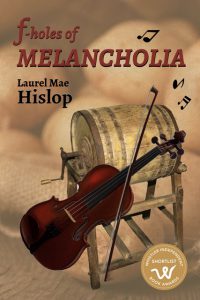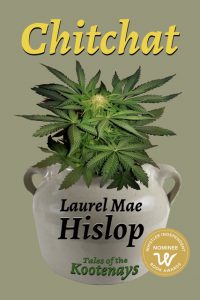Review of "Deep Song: Cante Jondo"
In these grim days of lockdown and worry, we turn to books for solace. We want books that are easy to read, that give us characters we can sympathize with, and plots that have endings that satisfy.
Laurel Hislop’s latest novel, Deep Song, is the perfect book for these times. Told in first-person narrative by the main character, a woman named Halca, its plot centres around her search to find her birth parents after years of living with a controlling, unsympathetic adoptive mother and a weak, browbeaten father. Halca needs romance as well. At thirty-three years of age, still a virgin, she wants a man to love and provide her with sexual fulfillment.
As the plot winds to its conclusion, Halca finds the strength to achieve her goals. As we immerse ourselves in her struggles, we learn as well so much about the people we call gypsies: their culture, their carefree, unstructured lives, and the window of friendship they open to a desperate young woman. One of these gypsies is the musician Leandro who loves Halca and encourages her to sing the deep songs that touch her heart and soul.
Hislop’s prose offers us page after page of enjoyment and insight. Not only is her research into Roma life extensive and engrossing, her deep knowledge of Vancouver offers us wonderful views of landmarks like Stanley Park and lesser spots like the restaurants, pubs, and trailer park that give Halca a freedom she has never before encountered in her empty life with her adoptive parents and her stultifying job in a dress shop.
Deep Song is the book we need for these boring days. Buy a copy, curl up with a favourite beverage, and find pleasant hours of entertainment.
By Ann Birch
Author of: “Settlement,” “The Secret Life of Roberta Greaves,” and “Duelling in a New World.”
Whistler Independent Book Awards Review of "f-Holes of Melancholia"
The action takes place on a farm in Saskatchewan in the 1920s. The harsh life with frigid winters, fields and animals to care for, and endless domestic tasks are very well rendered.
The family’s default theme is nostalgia for their high-class and music-filled life in pre-Bolshevik Russia, as contrasted with dreary life in rural Saskatchewan. The theme of adaptation of new immigrants to their harsh and primitive life on a farm predominates, as illustrated by Katya’s inability and unwillingness to accept her new life and learn domestic and farming skills. The theme of mental instability, as exemplified by an obsession with music as a refuge and a saviour is very well developed. In her head, Katya is always on stage in a concert hall.
Review of "f-Holes of Melancholia "
Laurel Mae Hislop’s excellent book about life in a remote countryside in Saskatchewan in the 1920s is a must-read. Perhaps it will appeal most to immigrants who have been forced to leave settled lives behind and start over again in completely new environments.
As I read it, I remembered visiting a small museum in a Newfoundland village and reading the diary of an English war bride who came to Newfoundland from London after the Second World War. Her angst at coping with Canadian winters, a farmwife’s chores, and the desolation of friendlessness are echoed in the plight of Katya Sadilov, a musical prodigy from Russia who, during the Bolshevik Revolution, moves from the concert stages of St. Petersburg to a primitive Saskatchewan farmhouse.
Katya’s new Canadian husband is George Brown, a man whose total life is subsumed in the daily struggle to survive and who, though sympathetic at first to Katya’s ignorance of cream churning and cow-milking, becomes impatient with her inability to cope with her new life. He hires a know-it-all farmwoman called Mary who calls Katya “princess” and laughs at her incompetence.
Katya descends into melancholia. Her violin and the music she loves to play help save her from madness. As well, she is fortunate to have her loving parents nearby. Her father Vasili, especially, remains her staunchest advocate and his love for his daughter enables her to survive and eventually find a happy solution to her life.
Hislop evokes with great accuracy the horror of Saskatchewan winters, the dreary church services that offer the only social escape, and the conflicts of an unhappy marriage. She tells the story from the first-person viewpoint of Katya and the third-person narrative of Katya’s father Vasili, a skilful choice that evades the danger of hearing only from a potentially unreliable narrator. Hislop’s Epilogue is a tour de force that offers readers everything they hope for.
Ann Birch—author of “Settlement” “The Secret Life of Roberta Greaves” and “Duelling in a New World”
Whistler Independent Book Awards review of "Chitchat"
Hislop does a good job of playing with themes of convention and belonging in an environment where the “counter culture” predominates. While she uses some unusual similes “like a full-blind dovetail joint,” these often suit the quirky nature of the residents.
I found her dialogue believable and her characters well differentiated.
Review of "Chitchat"
Chat and its inhabitants share universal problems: wife-beating, jealousy, suspicion, and addiction. What makes the stories unique is the skill in which Hislop describes the world her characters inhabit, bringing it to life for her readers.One theme predominates as a beacon for all readers. It’s the power of friendship — or, as Hislop describes it, that ‘ember of delight’ that flickers into flame to give warmth and comfort in life’s darkest moments.
Ann Birch—author of “Settlement” “The Secret Life of Roberta Greaves” and “Duelling in a New World”



